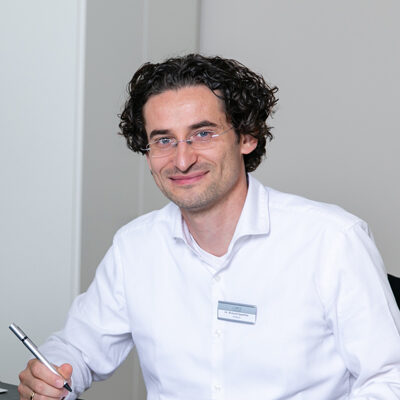Eustress – When stress does you good
Have you ever thought: “I’m totally stressed, this is great!”? – Probably not! Yet this is not so far-fetched. As crazy as it sounds, we need a certain amount of stress in our lives to feel energized and happy. But why is that and what is behind the so-called positive stress?
What is actually stress?
Before we can distinguish between positive and negative stress, it is important to define stress in general terms. Stress is basically defined as a physical and psychological reaction to a situation that is difficult to cope with. Most people will know the feeling when, for example, there are only a few hours left until an important deadline at work or the train is cancelled on the way to an important appointment. The breath quickens, the heart races and the hands are shaky. Such a situation can be caused either by internal stimuli such as fears and worries, or by external factors. In both situations, however, it is important to note that stress is something highly subjective. While one person’s stress level skyrockets after standing in a traffic jam for just ten minutes, another person turns on the radio and relaxes. But even though stress is very individual, some general triggering factors can be identified:
- Time pressure
- Conflicts in the partnership, the family or at work
- Pressure to perform
- Drastic experiences
- Overstimulation
Our bodies continuously perceive external and internal stressors, to which the brain responds by triggering biochemical processes and putting us on alert. Stress hormones such as adrenaline and cortisol are released, enabling us to react instinctively and swiftly to potential dangers. Due to the improved oxygen supply to the brain and muscles, blood sugar levels as well as blood pressure increase and we feel full of energy.
“Distress” and its consequences
Not all stress is the same! As already mentioned, stress has an evolutionary meaning and is harmless as long as it only lasts temporarily and the body can relax again after a short time. However, when most people speak of classic stress, they mean distress (negative stress). The performance, which is initially increased in alarm for a short time, decreases rapidly here, because no recovery and relaxation is found in the long term. Distress is just so harmful, because we feel permanently under pressure, overloaded and driven. The adrenaline level and blood pressure are elevated over a longer period of time and the resulting energy cannot be sufficiently dissipated. This results in a decisive risk factor for a wide variety of mental illnesses such as depression and anxiety disorders. Typical situations in which most people experience distress are exams, crowds or a job loss.
“Eustress” – The Positive Side of Stress
Distress harms us and can make us sick if we are not careful. Fortunately, we can also look at stress from a positive side and use the so-called eustress for our well-being and health. We feel eustress when we are excited in a pleasant way and stressful situations make us feel euphoric. Often these are situations that bring us joy: Riding a roller coaster, being accepted for a new job, or going on a date. Our pulse is just as quickened and we can be electrified, yet we don’t feel anxious or threatened at all. Numerous studies show that eustress increases concentration and performance and makes us more social. In addition to the hormones mentioned above, oxytocin can also be released during stressful times, which promotes empathy and makes us more receptive to the support of others. It has even been shown that wounds heal faster and antibiotics work better when people are exposed to a short-term stress response.
Can negative stress be transformed into positive stress?
If all stress were really just harmful, wouldn’t extreme athletes, CEOs or politicians be permanently ill? Why is it that some people perform at their best in stressful situations and even look forward to the next one? The answer is quite simple: These people evaluate their perceived stress as predominantly positive. They see their growth in the foreground, are proud when they have mastered challenges and are thus motivated for upcoming stressful situations. People who believe that severe stress is harmful, on the other hand, are actually sick more often than those who perceive it as beneficial. But if this is supposed to be the solution – how do we succeed in perceiving stress as beneficial?
Balance is the key
Of course, it would be nice if we could change the evaluation of all stressful situations from negative to positive at the push of a button. We would certainly often delude ourselves in the process, because certain situations such as illness or the loss of a loved one are certainly not very positive. Rather, the solution is a healthy balance in our lives of activities and goals that we MUST fulfill and those that we WANT to fulfill. Everyone knows the feeling of being on fire for something, getting into a flow state while doing it, and losing track of time. This is a good example of an activity we want to do that tends to be more associated with positive stress. So it’s about looking for activities and life goals that make you happy and satisfied, in addition to the unavoidable mandatory tasks. It is still very much anchored in our minds that we have to prevent distress in the course of wellness or vacations and can thereby alleviate it. This often works very well for a short time, but then the next stressful situation, no matter how small, triggers the previous feelings of distress again. So if the distress cannot be re-evaluated, it is more a matter of questioning the current circumstances of life, such as the job, starting new leisure activities or making social contacts.
Categories: Burnout Depression
